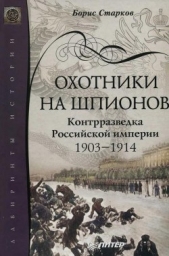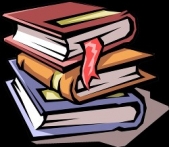Шпионы XX века

Шпионы XX века читать книгу онлайн
Неизвестные похождения известных асов шпионажа, новые для нас имена крупнейших шпионов (таких, как знаменитый писатель Сомерсет Моэм), оригинальные версии тайных операций (например, дела Пеньковского) – все это читатель найдет в книге английского публициста Филлипа Найтли, вышедшей в Великобритании под названием «Вторая древнейшая профессия». Книга мгновенно стала бестселлером, переведена во многих странах. Автору, пожалуй, впервые удалось объемно показать, насколько это возможно, систему и особенности деятельности ведущих спецслужб – СИС, ЦРУ, КГБ. При этом суждения Найтли отличаются своеобразием, далеко не всегда совпадают со взглядами других исследователей, а по манере изложения и вовсе оригинальны. Написанная увлекательно, местами иронично, книга читается с интересом не меньшим, чем хороший детективный роман.
Внимание! Книга может содержать контент только для совершеннолетних. Для несовершеннолетних чтение данного контента СТРОГО ЗАПРЕЩЕНО! Если в книге присутствует наличие пропаганды ЛГБТ и другого, запрещенного контента - просьба написать на почту [email protected] для удаления материала
(26) Joint Weekly Intelligence Summary, British Troops, Austria. Liddell Hart Collection, 9/24/229, University of London, King's College Centre for Military Archives.
(27) West, M16, pp. 173, 184.
(28) ibid., pp. 200 – 1.
(29) Trefousse, 'Failure of German Intelligence', p. 100.
(30) 'The Profession of Intelligence', part 2, BBC Radio 4, 12 March 1980.
(31) The correspondence between Liddell and Johnson, and Johnson and the State Department is in the National Archives, Washington under: US Embassy, London, 1940 – 1941, RG 84, Box 4/820/02/C/1940.
(32) Farago, Foxes, pp. 472 – 3.
(33) The Times, 6 September 1944.
(34) Corson, Armies of Ignorance, pp. 30 – 1.
(35) David Mure, Master of Deception: Tangled Webs in London and the Middle East (London: Kimber, 198G), p. 190.
(36) Hinsley, British Intelligence, vol. 1, p. 58.
(37) Mure, Master of Deception, p. 165.
(38) ibid., p. 37.
(39) Letter from Philby to author, 27 March 1978.
(40) Dusko Popov, Spy/Counter Spy (London: Panther, 1976), p. 223.
(41) 'German Naval Intelligence, Part B: Naval Intelligence and the Normandy Invasion', 15 October 1946, p. 44, US National Archives, Washington DC.
(42) See Gert Buchheit, Spionage in zwei Weltkriegen (Landshut: Politisches Archiv, 1975), p. 326; and O. Reile, 'Wer tauschte die deutsche militarische Fuhrung liber die Starke der in England fur die Invasion bereitgestellten Streitkrafte?' Wehrwissenschaftliche Rundschau, no. 3 (1979), p. 83.
(43) Buchheit, Spionage, p. 326.
(44) 'German Naval Intelligence', cit. at n. 41, p. 68.
(45) Reile, 'Wer tauschte', p. 83.
(46) Mure, Master of Deception, p. 176.
(47) Hinsley, British Intelligence, vol. 1, pp. 137, 187.
(1) Respectively: Ronald Lewin 'A Signal-Intelligence War', in Laquer, Second World War, p. 185; and Roger J. Spiller, 'Assessing Ultra', Military Review, vol. 59, no. 8 (August 1979), p. 14.
(2) Harold Deutsch, 'The Influence of Ultra on World War II', Parameters: Journal of the U. S. Army War College , vol. 8 (December 1978), p. 6.
(3) David Kahn, 'The International Conference on Ultra', Military Affairs vol. 43, no. 2 (April 1979), p. 98.
(4) Peter Calvocoressi, Top Secret Ultra (London: Hutchinson, 1979), p. 36.
(5) Ralph Bennett, Ultra in the West (London: Hutchinson, 1979), p. 36.
(6) Agawa Hiroyuki, The Reluctant Admiral (Tokyo: Kadansha International, 1979), p. 347.
(7) 'The Profession of Intelligence', part 2, BBC Radio 4, 12 March 1980 .
(8) 'The Profession of Intelligence', part 3, BBC Radio 4, 27 January 1982 .
(9) Spiller, 'Assessing Ultra', p. 19.
(10) D. Homer, 'Special Intelligence in the South-West Pacific Area in World War II', Australian Outlook, vol. 32, no. 3 (1978), p. 316.
(11) Spiller, 'Assessing Ultra', p. 22; and Ralph Bennett, 'Ultra and Some Command Decisions', in Laquer, Second World War, pp. 223 – 4.
(12) Stephen E. Ambrose, "Elsenhower and the Intelligence Community in World War II', Journal of Contemporary History, vol. 16 (1981), p. 158.
(13) 'Der Einfkuss alliierten Funkaufklarung auf den Verlauf des Zweiten Weltkrieges', Vierteljahreshefte fur Zeitgeschichte, vol. 27, no. 3 (1979), pp. 362 – 3.
(14) Ambrose, 'Eisenhower', pp. 158 – 9.
(15) Calvocoressi, Top Secret Ultra, p. 108.
(16) 'Interim', British Army of the Rhine Intelligence Review, no. 19 (4 March 1946), in the Liddell Hart Papers under German Intelligence in the West, 1944 – 1945, File on Col M. University of London, King's College Centre for Military Archives.
(17) Gunther Blumentritt, 14 August 1942, Liddell Hart Papers, 9/24/229, Intelligence.
(18) J. Rohwer, and E. Jackel (eds). Die Funkaufklarung und ihre Rolle im Zweiten Weltkrieg (Stuttgart: Motorbuch, 1979), p. 111.
(19) Spiller, Assessing Ultra', p. 18.
(20) Andrew Hodges, Alan Turing: the Enigma of Intelligence (London: Unwin Paperbacks, 1985), p. 244.
(21) Aileen Clayton, The Enemy Is Listening (London: Hutchinson, 1980), pp. 79 – 85.
(22) Philby, My Silent War, p. 38.
(23) Hinsley, British Intelligence, vol. 1, p. 178.
(24) Calvocoressi, Top Secret Ultra, p. 58.
(25) Bennett, 'Ultra and some Command Decisions', p. 232.
(26) Peter Calvocoressi, 'Ne Plus Ultra World War', The Times. 3 May 1984.
(27) Bennett, 'Ultra and some Command Decisions', p. 231.
(28) Spiller, 'Assessing Ultra', p. 20.
(29) Kahn 'International Conference on Ultra', p. 98.
(30) James Rusbridger, 'Secrets of Enigma", The Times, 17 May 1985.
(31) F. D. Shirreff, 'Some Experience with Special Signals', Mercury. The Magazine of the Royal Signals Amateur Radio Society (1981 – 2).
(32) David Kahn, 'Codebreaking in World Wars I and II', Historical Journal, vol. 23 no. 3 (1980), p. 624.
(33) Hodges, Alan Turing, p. 261.
(34) Calvocoressi, Top Secret Ultra, p. 85.
(35) Kahn, 'Codebreaking', p. 624.
(36) His obituary in The Times. 31 August 1971 .
(37) See James Rusbridger, 'The Sinking of the Automedon, the Capture of the Nankin, Encounter, May 1985.
(38) Calvocoressi, Top Secret Ultra, p. 94.
(39) Respectively: Nicholson in interview with author, 1967; Thomas O'Toole, 'World War II – Some Additional Postscripts Come to Light', International Herald Tribune (Paris), 14 September 1978; and interview with Page, Leitch and Knightley, 1967.
(40) Waldemar Werther, as reported in Rohwer and Jackel, Funkaufklarung, p. 65.
(41) 'The Profession of Intelligence', part 3, BBC Radio 4, 27 January 1982 .
(1) John Erickson, The Road to Stalingrad (London: Weidenfeld & Nicolson. 1975), p. 89.
(2) ibid
(3) See M Toscano, Designs in Diplomacy (Baltimore, Md: Johns Hopkins Press, 1970), pp. 406 – 10.
(4) Skardon in interview with Leitch, 1980.
(5) Robert Cecil, 'The Cambridge Comintern', in C. Andrew and D. Dilks (eds). The Missing Dimension (London: Macmillan, 1984), p. 181.
(6) Cecil, ' Cambridge Comintern', p. 181.
(7) Gordon Brook-Shepherd, The Storm Petrels (London: Collins, 1977), pp. 172 – 5.
(8) Cecil, ' Cambridge Comintern', pp. 181 – 2.
(9) Geoffrey McDermott in interview with Page, Leitch and Knightley, 1967.
(10) Letter from Liddell of Ml 5 to Johnson of American Embassy, 26 December 1940 , US National Archives, Washington DC .
(11) Private letter to Page, Leitch and Knightley, 3 August 1967 .
(12) Bruce Page, 'The Endless Quest for Supermole', New Statesman, 21 September 1979 , p. 414.
(13) M. Sayle, 'Conversations with Philby', Sunday Times, 17 December 1967 .
(14) Page, Leitch and Knightley, Philby, p. 51.
(15) Philby, My Silent War. p. xviii.
(16) Letter to Harold Nicholson, undated.
(17) Nigel Wade, 'Soviet Press Praises Philby', Sunday Telegraph, 10 August 1980.
(18) Sayle, 'Conversations with Philby', cit. at n. 13.
(19) Cesil, 'Cambridge Comintern', p. 19.
(20) Toscano, Designs in Diplomacy, p. 409.
(21) Letter from Philby to author, 18 February 1974.
(22) Cecil, 'Cambridge Comintern', p. 175.
(23) See Chalmers Johnson, An Instance of Treason (Tokyo: Charles E. Tuttle, 1977).
(24) C. Johnson, Treason, p. 154.
(25) ibid., p. 154.
(26) Erickson, Road to Stalingrad, p. 239.
(27) Heinrich Haape, quoted in Desmond Flower and James Reeves (eds), The war 1939 – 1945. vol. 1 (London: Panther, 1967). p. 339.
(28) C. Johnson, Treuson. p. 18.
(29) ibid., p. 159.
(30) ibid., p. 172.
(31) Reported by the Associated Press in the Japan Times, 17 March 1975.
(32) Erickson, Road to Stalingrad, p. 54.
(33) Hinsley, British Intelligence, vol. 1, pp. 435 – 6.
(34) Erickson, Road to Stalingrad, p. 58.























